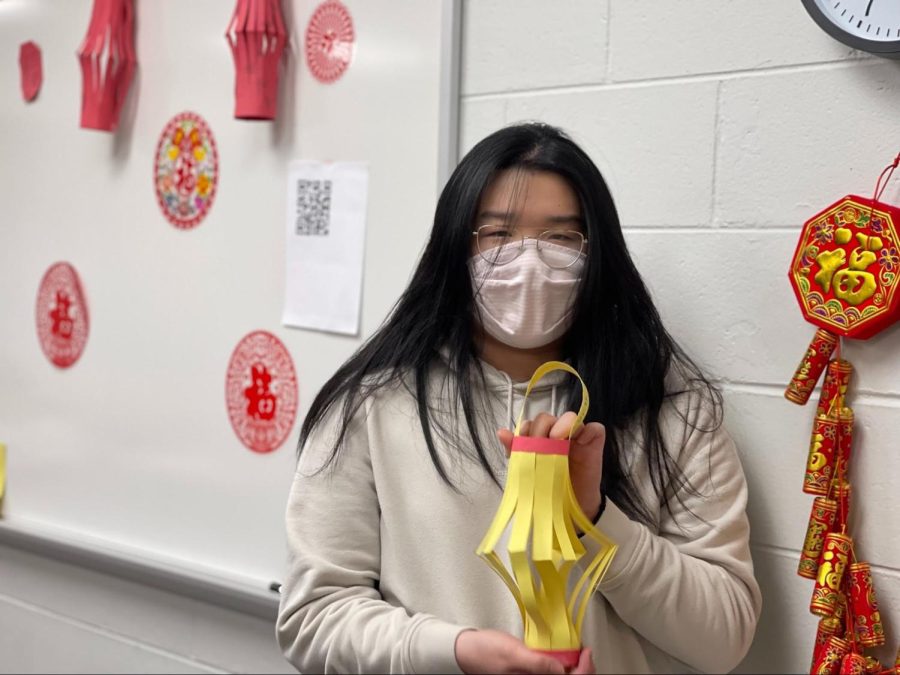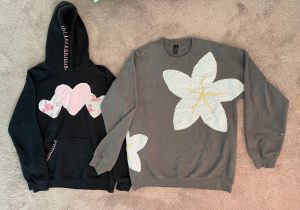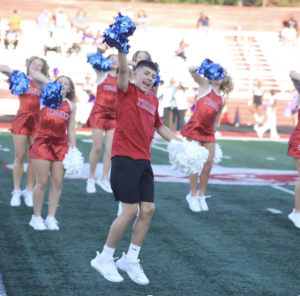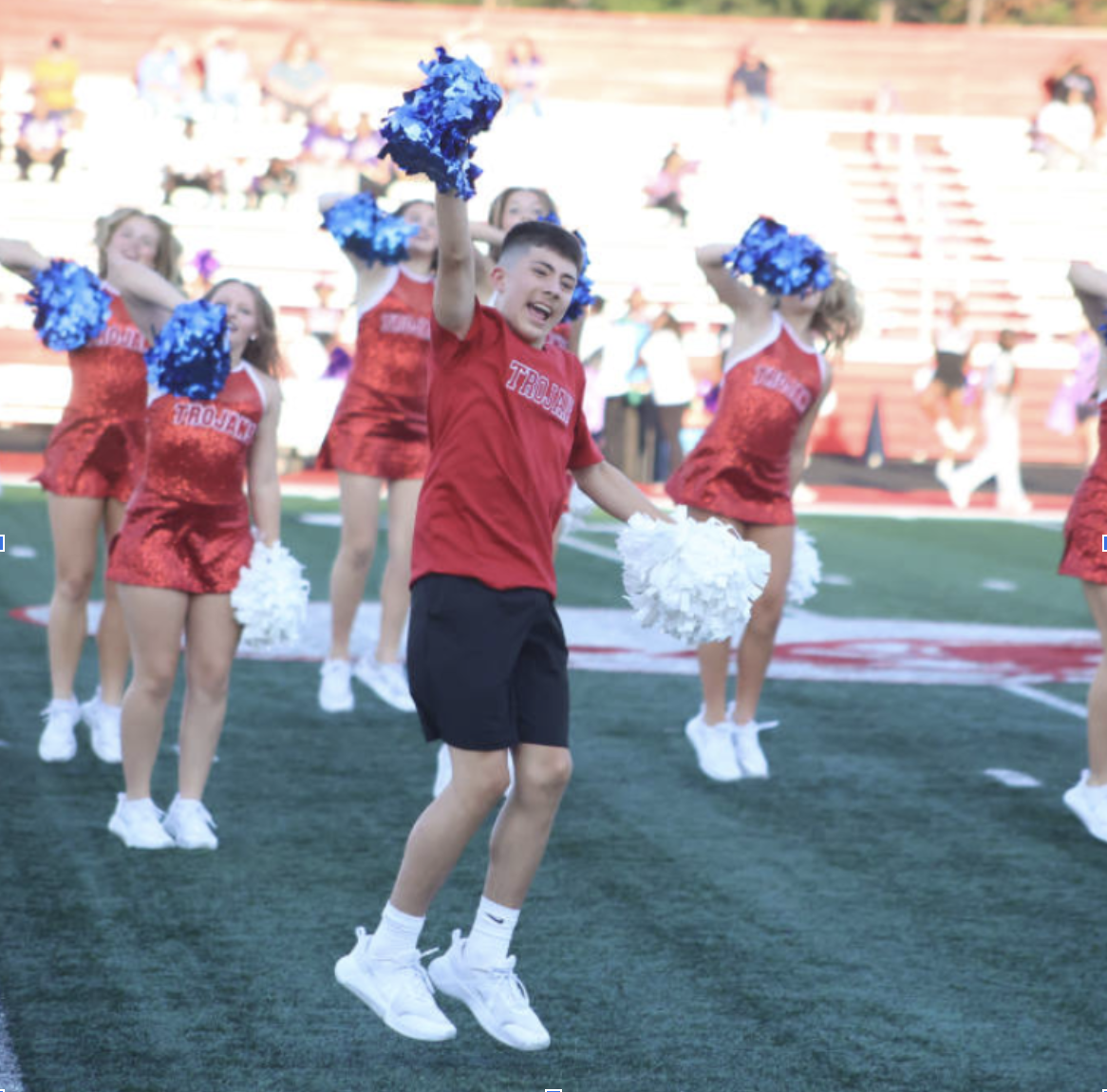Junior celebrates Lunar New Year
Li poses with lantern crafted by Chinese Club in preparation for the New Year.
February 1, 2022
Every year, junior Ivan Li and his family come together for the Lunar New Year, a time for celebration, starting anew and being together. Lunar New Year is a celebration in China usually meant to commemorate the coming of a new year and is the biggest event of the year for many Asian families.
“In Western cultures we have New Year’s Eve, and in Eastern cultures we have Lunar New Year, which people will celebrate for days, up to weeks even,” Li said. “It’s also the one time during the year where children are given a break in most Asian countries.”
This holiday is very important in Asian countries and holds a lot of cultural significance for those who celebrate it. Not only is Lunar New Year about coming together as a family, but it holds a lot of spiritual emphasis too.
“In Chinese culture we aren’t very religious, but we are very spiritual and place a lot of emphasis on family,” Li said. “Chinese culture puts a lot of respect on the elderly and those older than you. Our family really only celebrates Lunar New Year since it’s the one time where everybody gets together, and it’s sort of like a hub where all the family gets together.”
When Lunar New Year arrives, this is a time for Li and his family to come together and visit each other for the start of a new year. During the holiday this is a time to visit as they all join to celebrate.
“Lunar New Year is the celebration of the complete moon cycle. That’s why it is at different times each year,” Li said. “It’s sometimes the end of January or in February. In China, It’s also celebrated over a period of two weeks rather than here where most families just celebrate the one day. Over the two weeks period there’s also things like traditional dances and ceremonies done.”
As all of his family comes together, this is a chance to catch up with each other and visit in their native language, Fuzhounese.
“Fuzhounese is one of the more common languages in China, but it is a dying language and it’s the one that I can speak,” Li said. “The language is written the same as Chinese, Cantonese, etc, but it has a different tone of dialect to it. Chinese dialects are a lot more blunt in how they’re spoken. For instance Japanese is very smooth, and Korean is very bouncy, but our language is a lot more harsh with a lot rougher tones.”
While talking and visiting as a family, there is usually a lot of food being passed around too, with Li’s favorite being duck feet. As a child he was a picky eater, and this dish ended up being one of the only foods he enjoyed, so he relishes it every time he gets to eat it during Lunar New Year.
“Dumplings are very common because traditionally, they were meant to be shaped like golden coins, so they are meant to bring wealth,” Li said. “Another dish that’s common is a platter where we put different snacks and stuff in and in the middle we usually put an orange as they’re a sign of luck. There’s also usually candies and watermelon seeds and different things that you would put around it.”
While traditionally there are events done like dances, ceremonies, and parades, along with a wide array of food, there are also specific gifts given like little red packets of money, also called hongbao (紅包), which are small, flat red envelopes that contain money for the recipient
“Another tradition is that you will receive red packets of money,” Li said. “When you get one of the red packets, the person giving the packet will hold it out with both hands like a gift and then the person receiving the gift will bow their head.”
Lunar new year is a very big celebration that has many different aspects to it, not just the hongbao and food. It’s a very special celebration is Asian countries around the world and is important to those who celebrate it, not just Li. Lunar New Year starts on February 1st this year and will continue to be celebrated in the days following.















